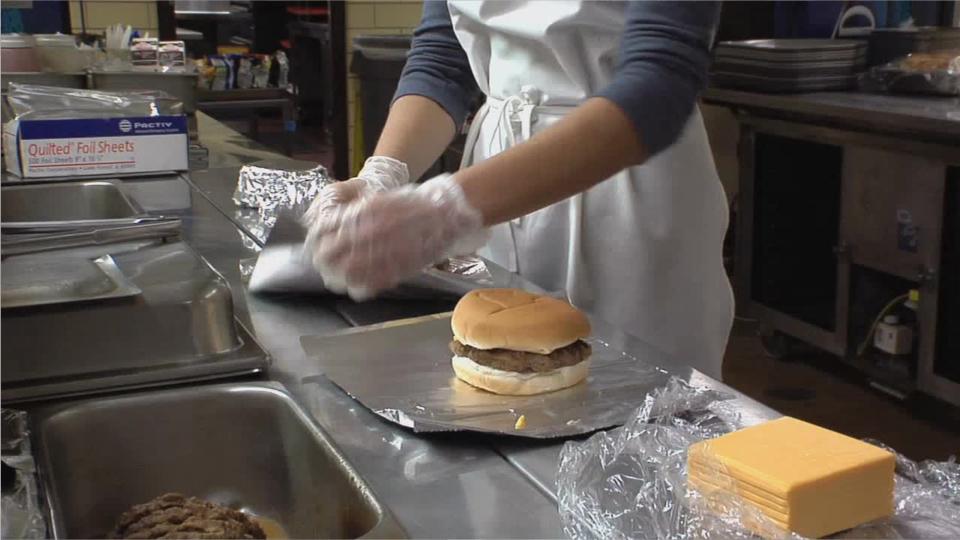Cooks, Institution & Cafeteria
Cafeteria Cook, Cook, Dietary Cook, School Cook
What they do:
Prepare and cook large quantities of food for institutions, such as schools, hospitals, or cafeterias.
On the job, you would:
- Monitor and record food temperatures to ensure food safety.
- Cook foodstuffs according to menus, special dietary or nutritional restrictions, or numbers of portions to be served.
- Rotate and store food supplies.
Knowledge
Arts and Humanities
- English language
Manufactured or Agricultural Goods
- food production
- manufacture and distribution of products
Business
- customer service
- management
Math and Science
- arithmetic, algebra, geometry, calculus, or statistics
Skills
Basic Skills
- keeping track of how well people and/or groups are doing in order to make improvements
- talking to others
Problem Solving
- noticing a problem and figuring out the best way to solve it
Abilities
Verbal
- communicate by speaking
- listen and understand what people say
Attention
- do two or more things at the same time
- pay attention to something without being distracted
Hand and Finger Use
- hold or move items with your hands
- keep your arm or hand steady
Personality
People interested in this work like activities that include practical, hands-on problems and solutions.
They do well at jobs that need:
- Dependability
- Attention to Detail
- Self Control
- Integrity
- Stress Tolerance
- Adaptability/Flexibility
Technology
You might use software like this on the job:
Spreadsheet software
- IBM Lotus 1-2-3
- Microsoft Excel
Data base user interface and query software
- Meals Plus
Point of sale POS software
- PCS Revenue Control Systems FASTRAK School Meal Software
Education
Education: (rated 2 of 5)
high school diploma/GED or
certificate after high school
usually needed
certificate after high school
usually needed
Job Outlook
Average
New job opportunities are likely in the future.
Explore More
- Chefs & Head Cooks
- Cooks, Private Household
- Cooks, Restaurant
- Cooks, Short Order
- Food Preparation Workers
You might like a career in one of these industries:
See more details at O*NET OnLine about cooks, institution and cafeteria.





